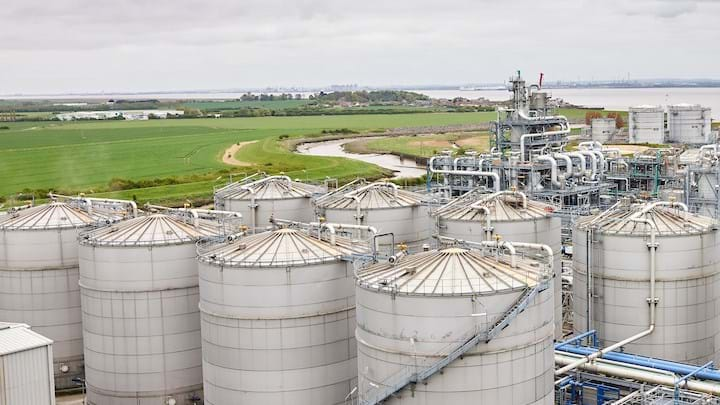ABF begins closure process of UK’s largest bioethanol plant amid uncertain government support

ASSOCIATED British Foods (ABF) has today started formal preparations to permanently close the UK’s largest bioethanol plant – a day after negotiations over business support began with the government.
ABF has launched a statutory 45-day redundancy consultation with the 160 employees of its wholly owned subsidiary Vivergo Fuels, which operates the bioethanol plant at the Saltend Chemicals Park in Hull.
The government described ABF’s decision as “disappointing”.
UK bioethanol manufacturing has been beleaguered since the US-UK trade deal announced in May agreed to give American bioethanol producers tariff-free access to the British market up to 1.4bn L – far more than the 820m L produced annually by the UK’s two major plants. ABF had set a deadline of yesterday for the government to provide assurance of financial support to the industry. While no firm assurance was made yesterday, the government launched “formal negotiations” with ABF over the future of Vivergo. However, in a notice to the London Stock Exchange this morning, ABF said the outcome of the negotiations remains “uncertain”, which has led them to launch the 45-day consultation “to effect an orderly wind-down” of operations.
ABF’s notice added that unless there was commitment of government support, Vivergo would cease manufacturing on 13 September.
An ABF spokesperson added: “We welcome the government’s decision to launch formal negotiations with us over the future of Vivergo.
“Over the coming weeks, we will engage intensively and transparently with officials to try to find a viable path forward. In parallel, we will today begin consultation with our employees. This process will conclude with a major decision to be made on the plant’s future, which will depend on whether the negotiations deliver a credible route forwards.”
A government spokesperson said: “We recognise this is a concerning time for workers and their families and it is disappointing to see this announcement after we entered into negotiations with the company on financial support yesterday.
“We will continue to take proactive steps to address the longstanding challenges the company faces and remain committed to working closely with them throughout this period to present a plan forward that protects supply chains, jobs and livelihoods.”
The Department for Business and Trade is in the process of recruiting external consultants to evaluate Vivergo’s proposals for “rescue and restructuring”.
Bioethanol in the UK is typically used as a fuel blend, forming 10% of standard grade petrol. ABF wants the government to create extra demand for the chemical by increasing the mandate for standard grade petrol to contain at least 15% bioethanol, which would also help reduce exhaust emissions.
Prior to the trade deal, which agreed to remove 19% tariffs on UK imports of US bioethanol, Vivergo was operating at a loss of £14.2m (US$19.5m). It has not yet been confirmed when the bioethanol trade agreement will be implemented, but the industry fears it will make UK production unviable, with a second major producer, Ensus, warning of an “imminent” risk of closure last week.
Both Vivergo and Ensus produce bioethanol from wheat grown on British farms, supporting around 4,000 jobs nationwide. Vivergo has suspended wheat purchases since early June. US bioethanol is already heavily subsidised and is largely produced in the country’s maize-rich midwest.
Recent Editions
Catch up on the latest news, views and jobs from The Chemical Engineer. Below are the four latest issues. View a wider selection of the archive from within the Magazine section of this site.




